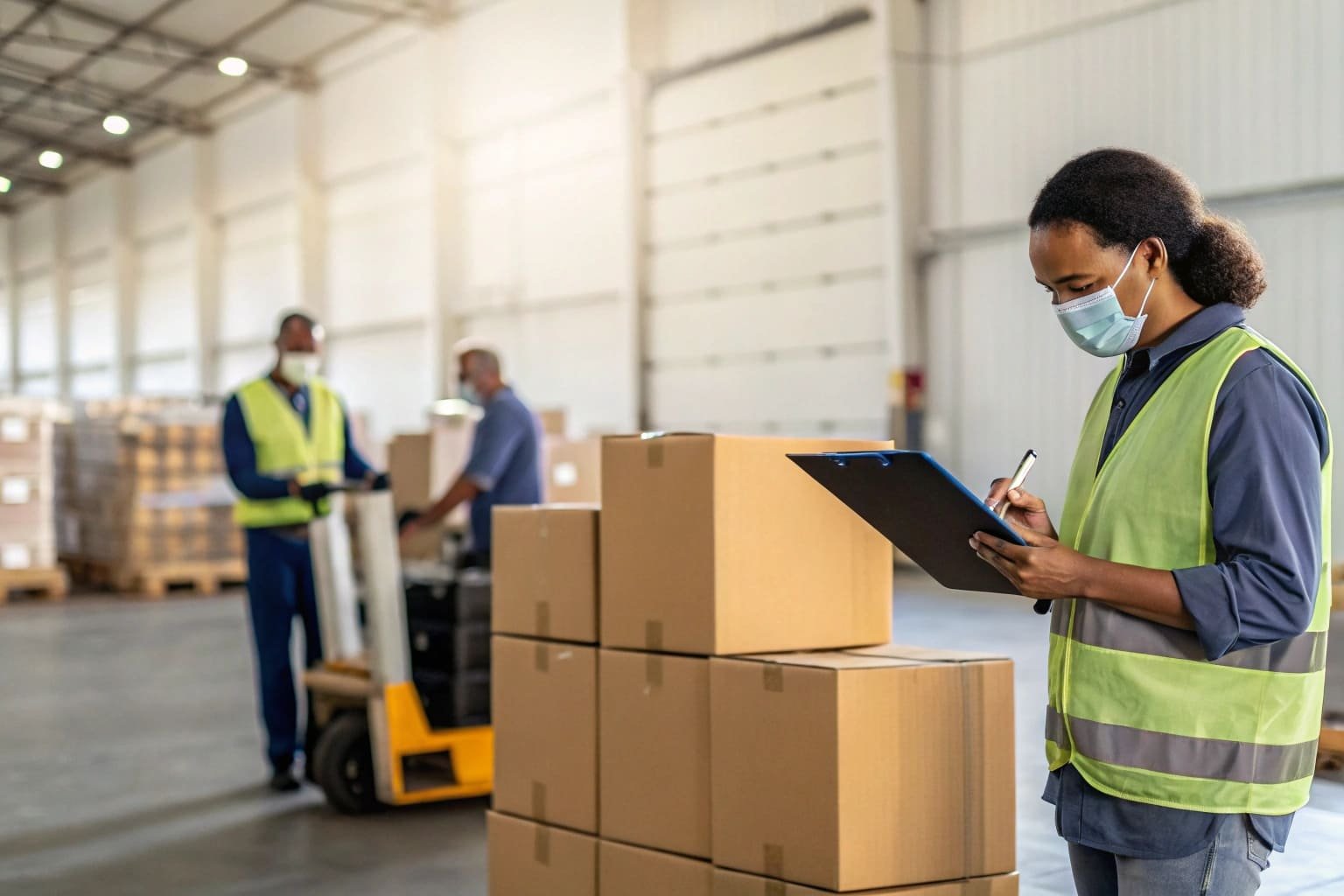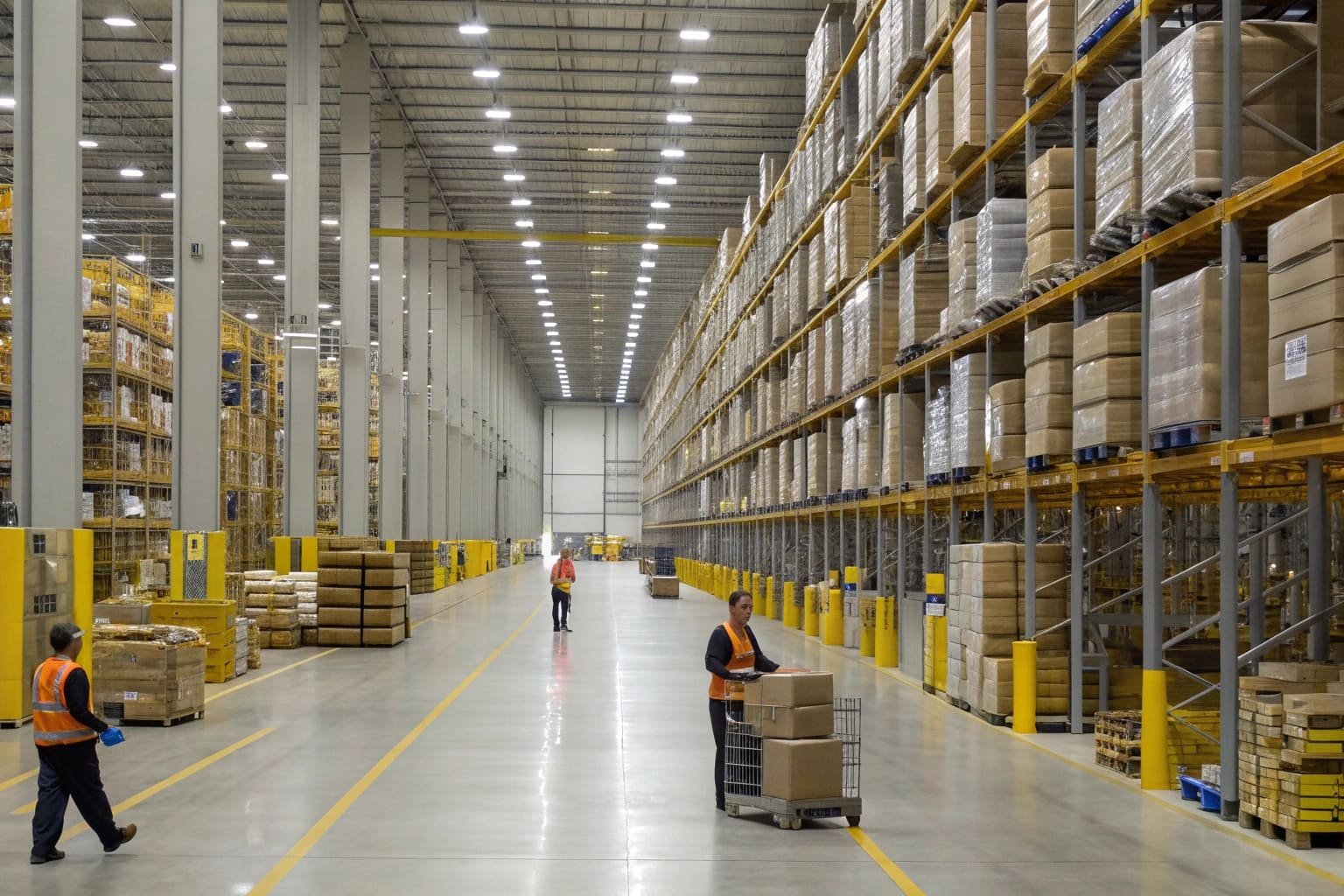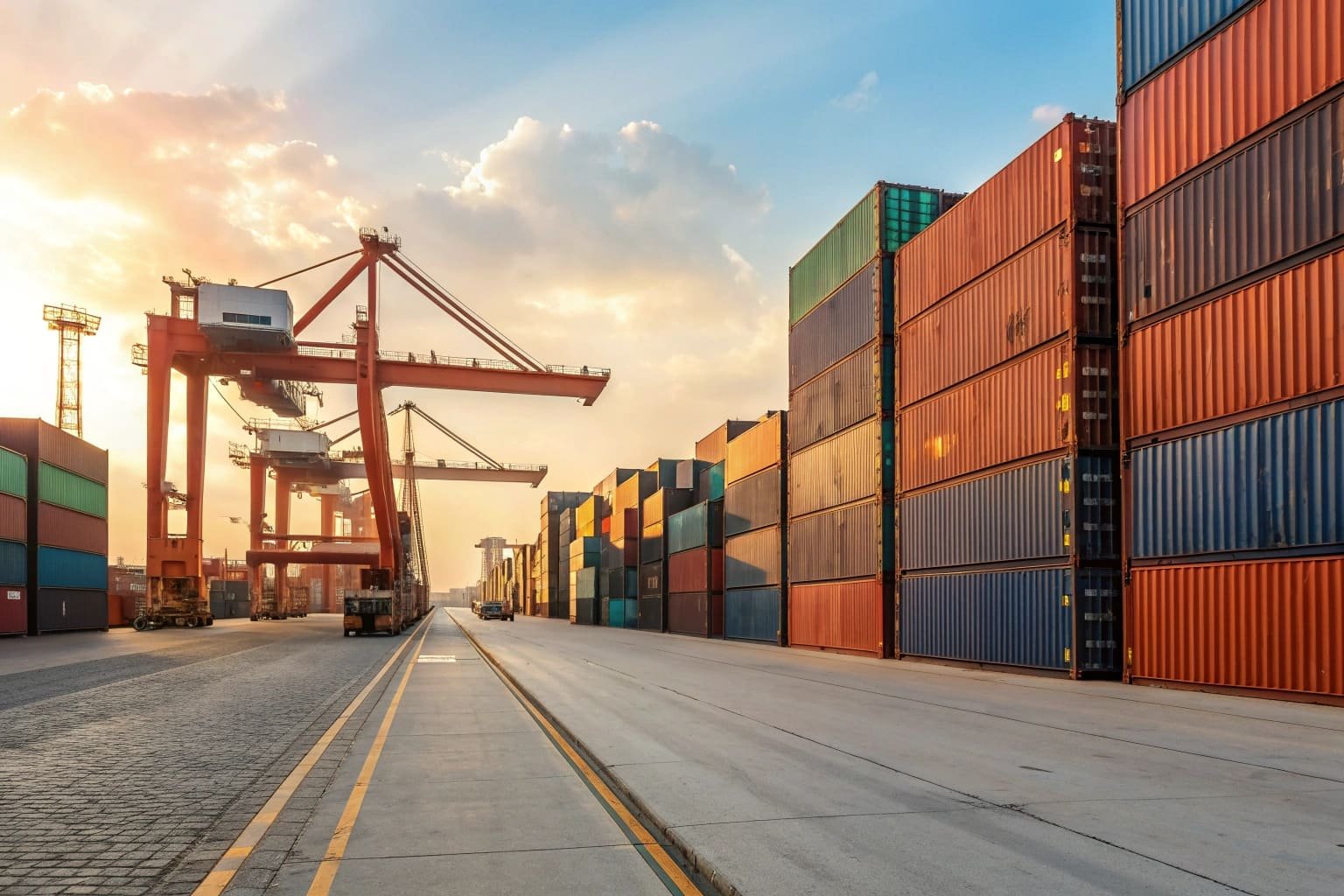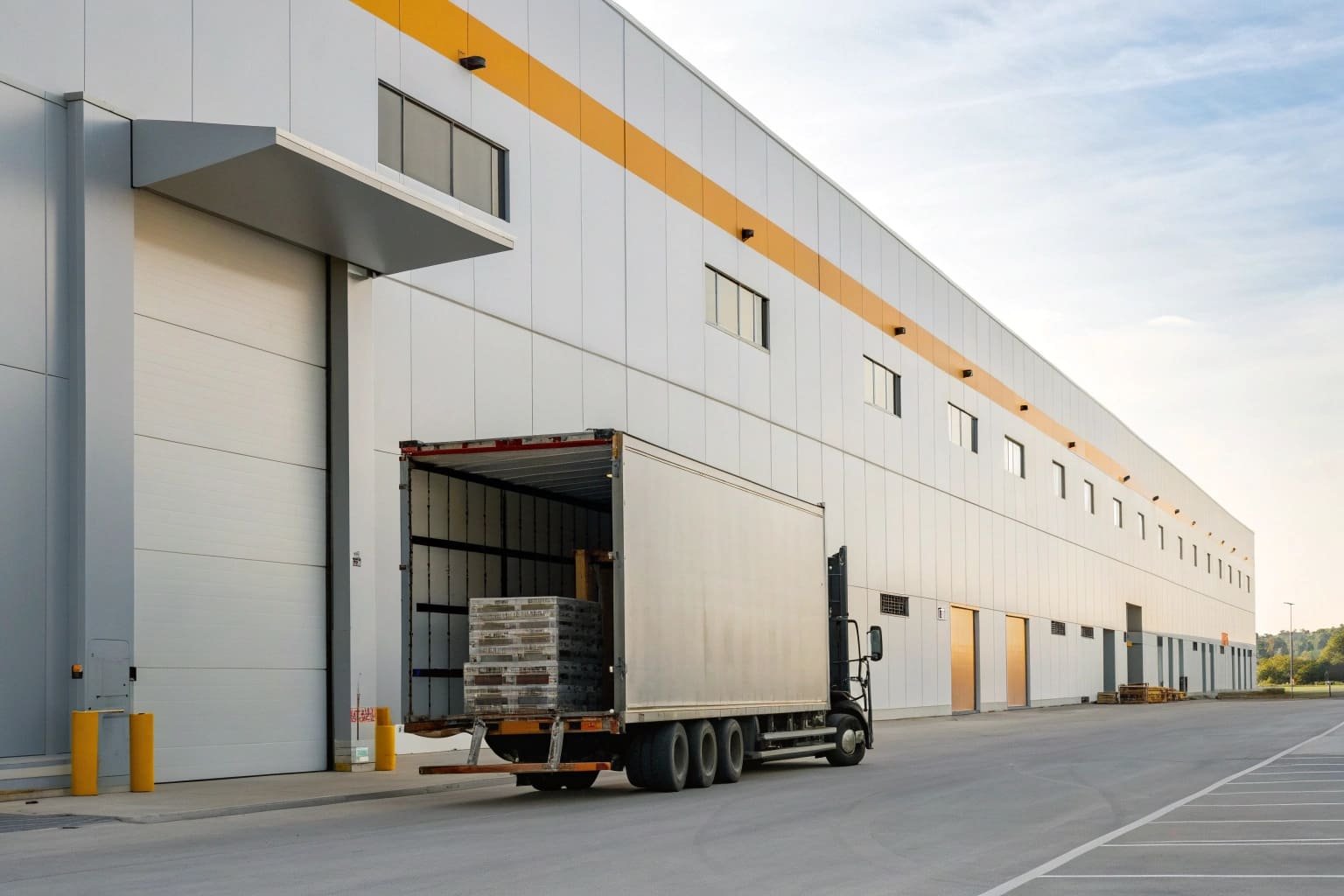Are you a business owner looking for cost-effective shipping solutions for smaller cargo?Shipping can be complex and expensive, especially when your shipments don't fill an entire container. Learn about LCL shipping and how it can save you money and streamline your logistics.
What is LCL Shipping?
LCL shipping is a method of shipment where your cargo doesn't fill a full container – in other words, it takes up 'less than a container load'. LCL shipping allows your goods to share container space with other small shipments to make up a full container between them.
This shipping method is particularly useful for businesses that do not have enough cargo to fill a whole container. It offers a flexible, cost-effective solution for shipping smaller volumes of goods, helping businesses to manage their logistics more efficiently and economically.
How Does LCL Shipping Work?
LCL shipment is the process of shipping goods that do not take up the entire volume of a single ocean container. This load is consolidated with other similar shipments to ensure that they can collectively meet the total volume of a container. Here’s a step-by-step breakdown of how LCL shipping works:
- Booking: The process begins with booking space in a consolidated container through a logistics provider or freight forwarder. Businesses need to provide details about their shipment, including weight, volume, and destination.
- Packing: Goods must be packed securely, often on pallets, to ensure they are protected during transit. Proper labeling and documentation are also crucial at this stage to avoid any customs or handling issues.
- Consolidation: The logistics provider collects goods from multiple shippers and consolidates them into one container. This involves meticulous planning to maximize container space and ensure that all goods are compatible in terms of handling and destination.
- Transport to Port: The consolidated container is transported to the departure port. This may involve additional handling and storage, depending on the logistics provider's operations.
- Shipping: The container is loaded onto a cargo vessel and shipped to the destination port. Throughout this journey, the shipment can be tracked through various tracking systems provided by the logistics provider.
- Deconsolidation: Upon arrival at the destination port, the container is deconsolidated. Goods are separated and prepared for final delivery to individual consignees.
- Final Delivery: The deconsolidated shipments are transported to their final destinations, either through local trucking services or other means of transport.
Advantages of LCL Shipping
LCL shipping offers several advantages for businesses, particularly small and medium enterprises (SMEs):
- Cost-Effective: By sharing container space with other shipments, businesses can significantly reduce shipping costs. This is particularly beneficial for smaller shipments that do not require a full container.
- Flexibility: LCL shipping allows businesses to ship smaller quantities more frequently, reducing the need for large inventory storage and improving cash flow.
- Environmental Benefits: Consolidating shipments into fewer containers can reduce the overall environmental impact of shipping, contributing to greener logistics practices.
- Global Reach: LCL shipping makes it easier for businesses to reach international markets, providing access to global trade routes and expanding business opportunities.
Disadvantages of LCL Shipping
While LCL shipping offers numerous benefits, there are also some drawbacks to consider:
- Longer Transit Times: LCL shipments often take longer to reach their destination compared to full container loads (FCL) due to additional handling and consolidation processes.
- Increased Handling: With multiple handling points, there is a higher risk of damage or loss. Proper packaging and reliable logistics providers are essential to mitigate these risks.
- Complex Documentation: LCL shipping involves more complex documentation and customs procedures, requiring careful management to avoid delays.
Is LCL Shipping Cheaper?
LCL is much cheaper than air freight in almost all trade lanes, and especially for high-volume cargo. The downside is that the transit time is usually much longer. You can overcome this challenge with forward planning. By consolidating shipments, LCL shipping reduces costs significantly, making it an economical choice for businesses with smaller shipments.
The cost savings of LCL shipping can be substantial when compared to other shipping methods. Here are some factors that contribute to the cost-effectiveness of LCL shipping:
- Shared Costs: Since multiple shippers share the cost of a single container, the overall shipping cost per unit is lower.
- Reduced Warehousing Costs: With more frequent, smaller shipments, businesses can reduce the need for large warehousing space, further lowering costs.
- Optimized Supply Chain: LCL shipping allows businesses to optimize their supply chain, reducing the need for large safety stocks and improving cash flow.
What is the Difference Between LCL and FCL?
FCL (Full Container Load): The client's goods are transported in a filled and sealed container. This method is suitable for larger shipments that can fill an entire container.
LCL (Less than Container Load): The client's goods are not numerous enough to fill a container, so the goods of several clients are put into one container. This method is cost-effective for smaller shipments but may involve longer transit times and more handling.
Comparison Between LCL and FCL:
- Cost: LCL is generally more cost-effective for smaller shipments, while FCL may be cheaper for larger volumes due to the economies of scale.
- Speed: FCL shipments typically have faster transit times since they do not require consolidation or deconsolidation.
- Risk: FCL shipments involve less handling, reducing the risk of damage or loss. LCL shipments, with multiple handling points, require more robust packaging.
- Flexibility: LCL offers greater flexibility for smaller, more frequent shipments, while FCL is suited for large, infrequent shipments.
What is the Difference Between LCL and FTL?
LCL (Less than Container Load): Your goods will be loaded into a shared container. This method is used for sea freight and involves consolidating shipments from multiple clients.
FTL (Full Truck Load): You pay for a whole truck of your own. This method is used for land freight and is suitable for larger shipments that require a dedicated truck.
LTL (Less than Truck Load): Your goods will be loaded into a shared truck. This method is similar to LCL but is used for land freight, where smaller shipments are consolidated into one truck.
Comparison Between LCL and FTL:
- Mode of Transport: LCL is primarily used for ocean freight, while FTL is used for land freight.
- Shipment Size: LCL is ideal for smaller shipments that do not require a full container, while FTL is suitable for larger shipments that need an entire truck.
- Cost Structure: LCL involves sharing container costs with other shippers, while FTL involves paying for the full truck regardless of the shipment size.
FCL Meaning in Shipping
FCL stands for Full Container Load. This term describes a shipping method where a shipment occupies the entire space of a container. FCL is suitable for large shipments that can fill a container, providing security and reduced handling.
What is LCL Shipping Tracking?
LCL shipping tracking involves monitoring the movement of your consolidated shipment. This can be done through the logistics provider's tracking system, which provides updates on the location and status of your cargo. Tracking ensures transparency and helps in planning the arrival of your goods.
Benefits of LCL Shipping Tracking:
- Real-Time Updates: Receive real-time updates on the location and status of your shipment.
- Enhanced Security: Monitor the security of your cargo throughout its journey.
- Improved Planning: Plan for the arrival and handling of your shipment with accurate tracking information.
What is LCL Shipping Cost?
The cost of LCL shipping is determined by several factors, including the volume and weight of your shipment, the destination, and the shipping route. LCL shipping is generally more economical than air freight and FCL for smaller shipments. Consolidating shipments helps in reducing the cost per unit, making it an affordable option for small and medium businesses.
What is LCL Shipping Rates?
LCL shipping rates vary depending on the logistics provider, the volume and weight of the shipment, and the destination. Rates are calculated based on the space your shipment occupies in the container. It is essential to get quotes from multiple providers to compare rates and choose the most cost-effective option for your business.
Factors Influencing LCL Shipping Rates:
- Volume and Weight: Larger and heavier shipments will incur higher costs.
- Destination: Shipping rates vary depending on the distance and destination port.
- Shipping Route: Some routes are more expensive due to demand and availability.
- Additional Services: Costs for additional services such as insurance, customs clearance, and handling fees.
LCL Shipment Procedure
- Booking: Contact a logistics provider and book space in a consolidated container. Provide details about your shipment, including weight, volume, and destination.
- Packing: Pack your goods securely for shipment. Ensure that packaging is robust enough to withstand multiple handling points.
- Documentation: Prepare and submit the necessary shipping documents, including the bill of lading, commercial invoice, and packing list.
- Consolidation: Your shipment is consolidated with other shipments. This involves careful planning to maximize container space and ensure compatibility.
- Loading: The consolidated container is loaded onto the shipping vessel.
- Transport: The container is transported to the destination port. Throughout the journey, tracking systems provide updates on the status and location of your shipment.
- Deconsolidation: At the destination port, the container is deconsolidated. Goods are separated and prepared for final delivery to individual consignees.
- Delivery: Your shipment is delivered to the final destination. Local trucking services or other means of transport may be used for this final leg of the journey.
LCL Full Form
LCL stands for Less than Container Load. This term describes a shipping method where shipments from multiple clients are consolidated into one container. LCL is an efficient and cost-effective solution for businesses with smaller shipments that do not require a full container.
Case Studies and Examples
Case Study 1: Small Business Expansion A small business specializing in handmade crafts wanted to expand its market to Europe. However, the business did not have enough volume to justify the cost of FCL shipping. By opting for LCL shipping, the business was able to send smaller, more frequent shipments, reducing costs and allowing them to test the market without significant financial risk.
Case Study 2: Seasonal Demand A medium-sized retailer needed to ship products for the holiday season but did not have enough inventory to fill a full container. Using LCL shipping, the retailer was able to send multiple smaller shipments in time for the peak season, ensuring that they had enough stock to meet customer demand without overcommitting to inventory costs.
Tips for Choosing an LCL Shipping Provider
- Reputation: Choose a provider with a solid reputation for reliability and customer service.
- Tracking Capabilities: Ensure the provider offers comprehensive tracking options for your shipment.
- Cost Transparency: Look for providers that offer clear and transparent pricing, including all potential fees.
- Experience: Opt for providers with extensive experience in handling LCL shipments, particularly in your industry.
- Customer Support: Good customer support is crucial for addressing any issues or concerns that may arise during shipping.
Summary
LCL shipping is an excellent option for business owners looking for cost-effective and efficient shipping solutions for smaller cargo. By consolidating shipments, LCL shipping reduces costs and provides a reliable method for transporting goods. Consider LCL shipping for your business to streamline logistics and save on shipping expenses.
Final Thoughts
Understanding the intricacies of LCL shipping can help business owners make informed decisions about their logistics and supply chain management. By leveraging the benefits of LCL shipping, businesses can optimize their shipping processes, reduce costs, and expand their market reach. Whether you are a small business looking to grow or a medium-sized enterprise aiming to optimize your logistics, LCL shipping offers a viable and cost-effective solution.






